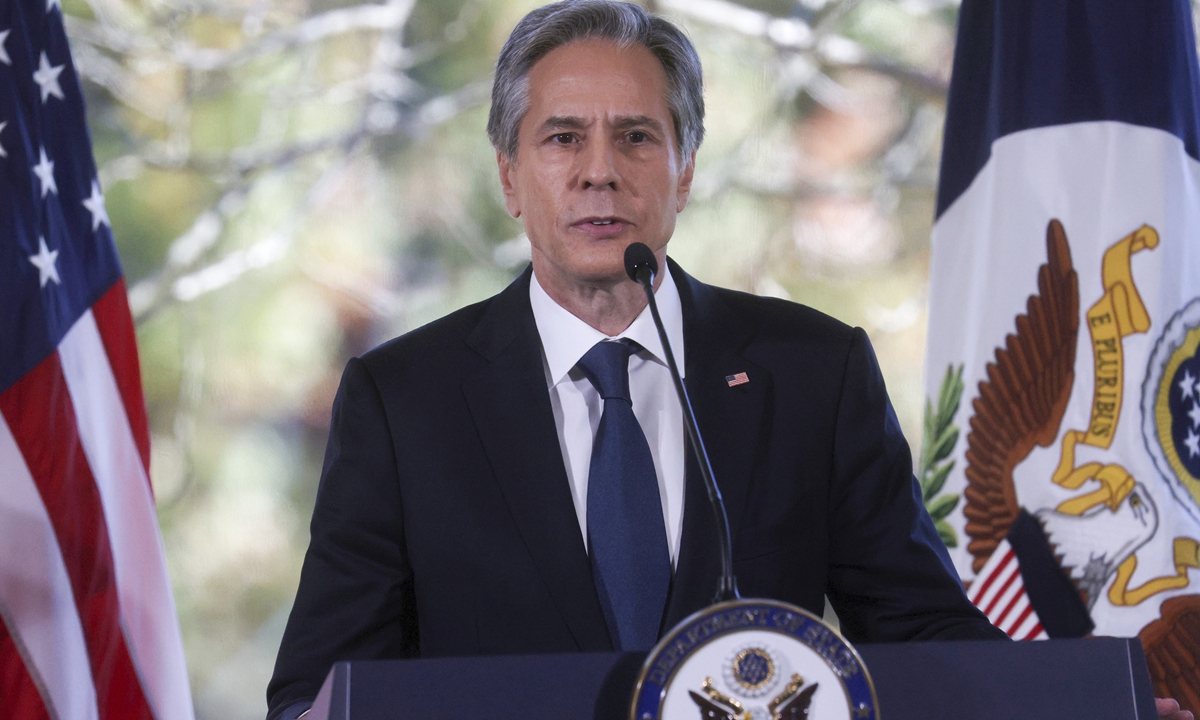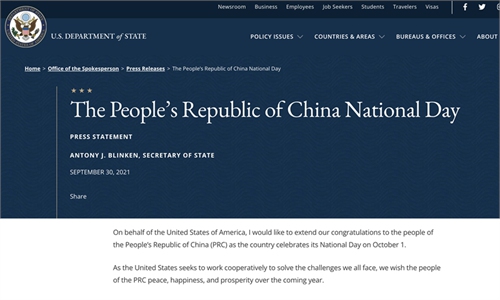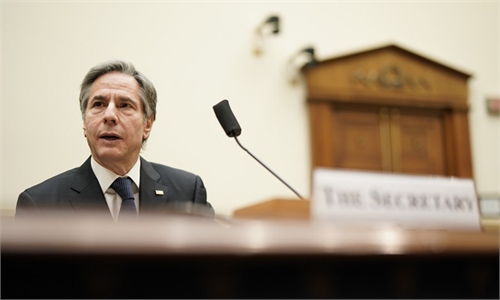US to face backlash in forming ‘united front’ with new cyber bureau to suppress China, Russia: expert

US Secretary of State Antony Blinken Photo: VCG
The US is stepping up its pace in grabbing its discourse power globally on cyberspace and other emerging technologies with its move to form a new bureau for cyberspace and digital policy at the State Department.
Although the US government does not identify any specific country in the official statement, media and experts believe the new plan is aimed at winning an internal power struggle in Washington by hyping international cybersecurity problems, especially so-called challenges from China and Russia.
What China can do is to be prepared for the long-term competition initiated by the US and continue to insist on an open environment for independent innovation, said Chinese experts.
Secretary of State Antony Blinken on Wednesday formally announced the establishment of a new cyber bureau at the State Department to help tackle cyber and emerging technology diplomatic issues, US media reported.
The new bureau will address issues including cyber threats, global internet freedom, surveillance risks and working with democratic allied nations to set international norms and standards on emerging technologies.
Ahead of the formal announcement, the Wall Street Journal said on Monday that the move was designed to better respond to proliferating and evolving international cybersecurity problems. Those include state-sponsored intrusions of US government networks, "theft of intellectual property by Chinese citizens and interference in US elections from Russia and elsewhere."
By taking the new move, the US is also trying to gain greater discourse power and a dominating position in the international community on emerging technologies and form a "united front" with its allies and partners by coercing them to take the same policy and measures in response to so-called global challenges, said Lü Xiang, a research fellow at the Chinese Academy of Social Sciences.
Such a "united front" apparently will target China, Russia, Iran, North Korea and other countries the US dislikes, Lü said.
Experts pointed out that the new move actually follows the former Trump administration which coerced or lured other countries to shun Chinese high-tech firm Huawei's 5G, and join the US' "Clean Network" scheme, which is very dirty.
But the US will face a big backlash when the US-led "united front" suppresses other countries on key technologies, such as cyberspace, AI, quantum science and technology and biotechnology.
It is certain that the US will intensify its crackdown on Chinese high-tech enterprises and technology, Lü said.
"What China can do is to be prepared for long-term competition against the US, continue to insist on an open environment for independent innovation, and continue to increase independent research and innovation in high-tech and emerging technologies," he said.
Chinese experts believe this latest move could also be the result of Washington's internal power struggle.
Technology issues have traditionally been handled by agencies under security services and the offices under the commerce and finance departments, while the US State Department had no such position to handle the issues, Lü explained
Now, the State Department plans to establish the new bureau headed by an ambassador-at-large, and to name a new special envoy for critical and emerging technologies, and both will report to Deputy Secretary Sherman, who is in charge of political affairs.
"It's kind of interesting," Lü said. From this perspective, the move could be a political calculation as Blinken is managing to take control of some key technologies from other departments, Lü told the Global Times on Thursday.



